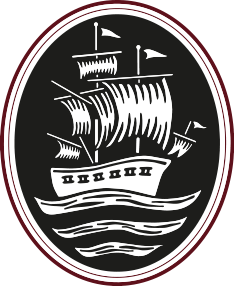English
At Kenyngton Manor Primary School our aim is for children to acquire the knowledge, skills and understanding in English which enable them to express their ideas fluently, confidently and imaginatively both verbally and in writing and to become fluent readers showing an increasingly mature understanding of a wide range of challenging texts.
Reading
Teaching children to read is a priority.
Our aim is that every child should read with confidence and enjoyment, widely and often.
The evidence indicates a direct link between reading for enjoyment with academic attainment and personal development.
Our children learn to read and then move on and read to learn.
In the Early Years Foundation Stage (Nursery, Preschool and Reception)
- Children frequently and regularly share stories, rhymes and poems.
- A range of books are freely available in the environment.
- Books are linked to play and continuous provision across the areas of learning
In the early stages of reading (mostly Reception/Year 1/Year 2)
- daily phonics lesson – (systematic teaching of synthetic phonics – Little Wandle Letters and Sounds Revised Phonics)
- small group reading sessions with an adult – for decoding, comprehension, and prosody
- home reading books: a practise book (fully decodable and matched to the phonic phase your child is working at) and a sharing book (a book parents can read to their child for enjoyment)
- daily, prioritised 'class reader' (story time) sessions.
Webpage Link: English - Phonics
In Years 2 to 6, reading is taught:
- in whole class reading lessons (built around the ‘Close Reading’ approach)
- through independent reading / home reading books
i) for early readers these will be fully decodable and matched to the phonic
phase your child is working at;
ii) for developing readers these will be colour book banded – children are
benchmarked so they are reading books at 90% accuracy and with an
appropriate level of comprehension;
iii) for progressing readers these will be freely chosen books. Children will
read these at school and bring them home to read too.
- Daily, prioritised, 'class reader' (story time) sessions.
LINK: Progression and Sequencing in Reading at KMPS
Writing
Our aim is to equip our children with the skills they need to be able to write fluently and appropriately for a wide range of different purposes and audiences.
In the Early Years Foundation Stage, the environment (indoors and outdoors) provides plentiful opportunities to engage in mark making. As children learn to form letters and use sounds to segment and write words, children are given opportunities to participate in meaningful opportunities for writing both in their play and when being taught by the adults who work with them.
In Reception through to 6, we teach writing using the 'Talk for Writing' approach. Each unit of work begins with an age-appropriate high-quality book or text (fiction or non-fiction).
Within the units we teach all aspects of English: speaking and listening, reading, grammar and spelling. Children develop their use of language for writing by learning and retelling stories and drama, which inspires and motivates children to write creatively. We encourage children to challenge themselves by using ambitious vocabulary choices, grammatical structures and a range of punctuation, linked to the Early Years Foundation Stage or the National Curriculum.
We teach handwriting explicitly (the KMPS Script) to enable children to develop a legible, correctly-formed, joined, automatic handwriting style (Cambridge PenPals).
Web Link: English – Handwriting
We teach spelling explicitly using the No-Nonsense Spelling scheme.
No-Nonsense Spelling - Ways to Learn Spellings
Writing skills are then applied as children write across the curriculum. Our children learn to write and then move on and write to learn

